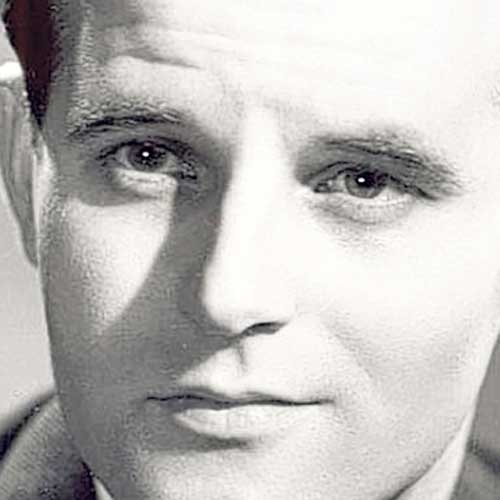
Your support helps us to tell the story
From reproductive rights to climate change to Big Tech, The Independent is on the ground when the story is developing. Whether it's investigating the financials of Elon Musk's pro-Trump PAC or producing our latest documentary, 'The A Word', which shines a light on the American women fighting for reproductive rights, we know how important it is to parse out the facts from the messaging.
At such a critical moment in US history, we need reporters on the ground. Your donation allows us to keep sending journalists to speak to both sides of the story.
The Independent is trusted by Americans across the entire political spectrum. And unlike many other quality news outlets, we choose not to lock Americans out of our reporting and analysis with paywalls. We believe quality journalism should be available to everyone, paid for by those who can afford it.
Your support makes all the difference.Colin Horsley, the New Zealand pianist who made his home in Britain, was first noticed at an end-of-term concert at the Royal College of Music in 1941 when he displayed "almost alarming virtuosity" in a performance of the Saint-Saëns G minor piano concerto. A reviewer wrote: "he can do everything and does it with ease".
By the following August he was appearing at the Proms, playing on the piano Bach's Concerto for Three Harpsichords, BWV 1064, with Joan Baker and Fanny Waterman and Henry Wood conducting. In total there were 21 Proms appearances, including the 1958 and 1960 Last Nights; at the latter he played the Saint-Saëns concerto again. His final Prom was in 1965, when he played the Grieg concerto. Regular BBC studio broadcasts began during the War and Horsley also undertook some tours for CEMA (Committee for the Encouragement of Music and the Arts) in 1945. In November 1946 on the Third Programme he played Alkan's Symphony for solo piano.
In 1947 he embarked on a world tour and before leaving gave a recital at the Wigmore Hall including Schumann's Kreisleriana and Albeniz's Iberia. A slight detachment from the music was detected and the Schumann became "less a series of mood pictures than a series of studies in pianoforte touch, tone and figuration". His playing of the Albeniz "suggested an almost visual rather than an emotional approach to the music": there was depth and brilliance rather than colour and warmth, a result that was unusual but not unpleasing. On his return, however, a certain waywardness, lack of solidity and conviction and rhythmic vagaries were detected. Perhaps he was tired.
His career soon picked up and, along with the staples of Tchaikovsky, Rachmaninov and other Romantic composers, he gave pioneering performances of newer works, such as Lennox Berkeley's Piano Concerto, premiered at the Proms in 1948 with Basil Cameron and the London Symphony Orchestra. The Berkeley initially failed to ignite the critics but Horsley's playing was commended, particularly his ability to find lyricism in essentially percussive music. With the passage of time, perceptions change and, in his study of Berkeley published in 1988, Peter Dickinson regards this concerto as being "at Berkeley's highest level". Ireland, Rawsthorne and Humphrey Searle also entrusted their works to Horsley and as early as 1946 he premiered Searle's First Piano Concerto. His performance (and recording) of Ireland's concerto is regarded as definitive.
He excelled as a chamber musician, and had a genius for ensemble playing, working with Denis Brain, Max Rostal and various quartets, such as the Amadeus and the Griller; with the Aeolian Quartet he performed Vaughan Williams's On Wenlock Edge with the tenor René Soames.
As a soloist he remained faithful to Berkeley, playing and recording his Six Preludes and his Piano Sonata which, although written for Clifford Curzon was, after its premiere, given more performances by Horsley. His recording had the benefit of the composer's close supervision. He commissioned Berkeley's Horn Trio, while the Concerto for Piano and Double String Orchestra was written for him.
He also gave the first performance of his fellow-countryman Douglas Lilburn's Sonatina (1946) at the Wigmore Hall in November 1947 and three years later he played Reger's (then) rarely heard Variations and Fugue on a Theme of Bach, music demanding prodigious virtuosity. Prokofiev, Szymanowski and Medtner (particularly the latter's Third Piano Concerto, which he played in London at Medtner's memorial concert in 1952) were composers who featured in his recital programmes.
In addition to recordings already mentioned, with Max Rostal in 1955 Horsley recorded Delius's Violin Sonata – a performance which in Alec Robertson's view would please those "who dislike the repetitious nature of Delius's chamber music, its incessant flow and lack of contrast and tension": shaping of phrases, the distribution of light and shade, and the capturing of the elusive spirit of the music resulted in an enchanting performance. Two years later came Stravinsky's Duo Concertant, then sonatas by Schubert, Schumann, Debussy, Elgar, Prokofiev and Walton (the latter only five years after its composition) and recordings of solo pieces by Chopin, Liszt, Franck and Rachmaninov.
Horsley retired to the Isle of Man, from where his grandfather had emigrated in 1880 to New Zealand, where Horsley was born to Robert Bramwell and Beatrice Dorothy Horsley, parents whose singing and piano-playing were the background to his childhood.
Colin Robert Horsley, pianist and teacher: born Wanganui, New Zealand 23 April 1920; Professor, Royal College of Music 1953-90, Royal Manchester College of Music 1964-80; OBE 1963; died Strang, Isle of Man 28 July 2012.
Join our commenting forum
Join thought-provoking conversations, follow other Independent readers and see their replies
Comments